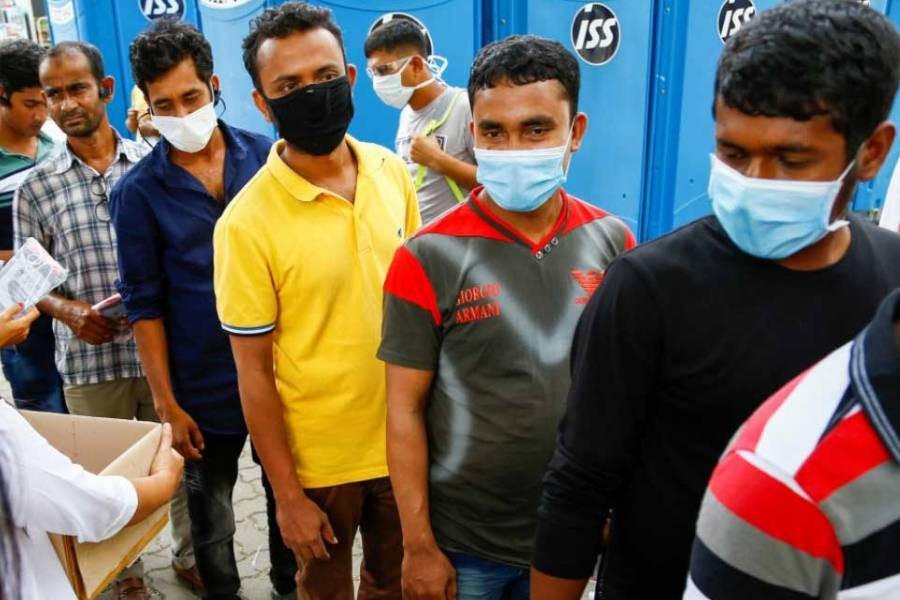
Published :
Updated :

Labour-receiving countries should take effective measures to stop 'so-called' irregular migration, experts observed at an online consultation on Thursday.
If the countries of destinations curb malpractices in the process of recruitment by a section of employers, they said, such irregular migration will come down.
They also called for ensuring proper support to the Covid-impacted migrant workers in both sending and destination countries.
Refugee and Migratory Movements Research Unit (RMMRU), Bangladesh Civil Society for Migration (BCSM) and Migrant Forum in Asia (MFA) jointly organised the Regional Multi-Stakeholders Consultation on 13th GFMD.
The title of the consultation was 'The Future of Human Mobility: Innovative Partnership for Sustainable Development, Post-Covid-19 Reality.'
Migration experts and rights activists from different countries took part in the discussion moderated by Prof C R Abrar, executive director of RMMRU.
The discussants said migrant workers across the world are suffering a lot following the outbreak of coronavirus. They have been stigmatised and victimised at home and abroad.
Dr Tasneem Siddiqui, founding chair of RMMRU, said the present concept of irregular migration criminalises the workers. But migrant workers become irregular because of malpractices in the recruitment process.
"Irregular migration will continue until or unless employing countries prevent such recruitment strictly."
She also said migrant workers face vulnerability during any disaster, pandemic or recession. Even they are facing maltreatment during the Covid-19 pandemic period, she added.
Ovibashi Karmi Unnayan Programme (OKUP) chairman Shakirul Islam said both sending and destination countries are economically benefited by migrant workers, but workers are not well treated by these countries.
Although a large number of migrants returned home during the Covid-19 period, he said, the government has no comprehensive support mechanism to reintegrate them at home economically and socially.
Moreover, a group of human trafficking victim workers who returned from Vietnam were victimised again at home by imprisonment under Section-54. But the perpetrators have not been brought to book so far.
Mr Islam said it is the high time to work together to protect the rights of migrants.
Ellene Sana, executive director of Centre for Migrant Advocacy in Manila, said migrant workers are facing problems in many ways during the pandemic. The workers and their children need protection.
Recruitment policy should be migrant-friendly, she added.
Barrister Anisul Islam Mahmud, chairman of the Standing Committee on Ministry of Expatriates' Welfare and Overseas Employment, and Dr Kamal Uddin Ahmed, full-time member of National Human Rights Commission, were also present at the programme.
arafataradhaka@gmail.com


 For all latest news, follow The Financial Express Google News channel.
For all latest news, follow The Financial Express Google News channel.